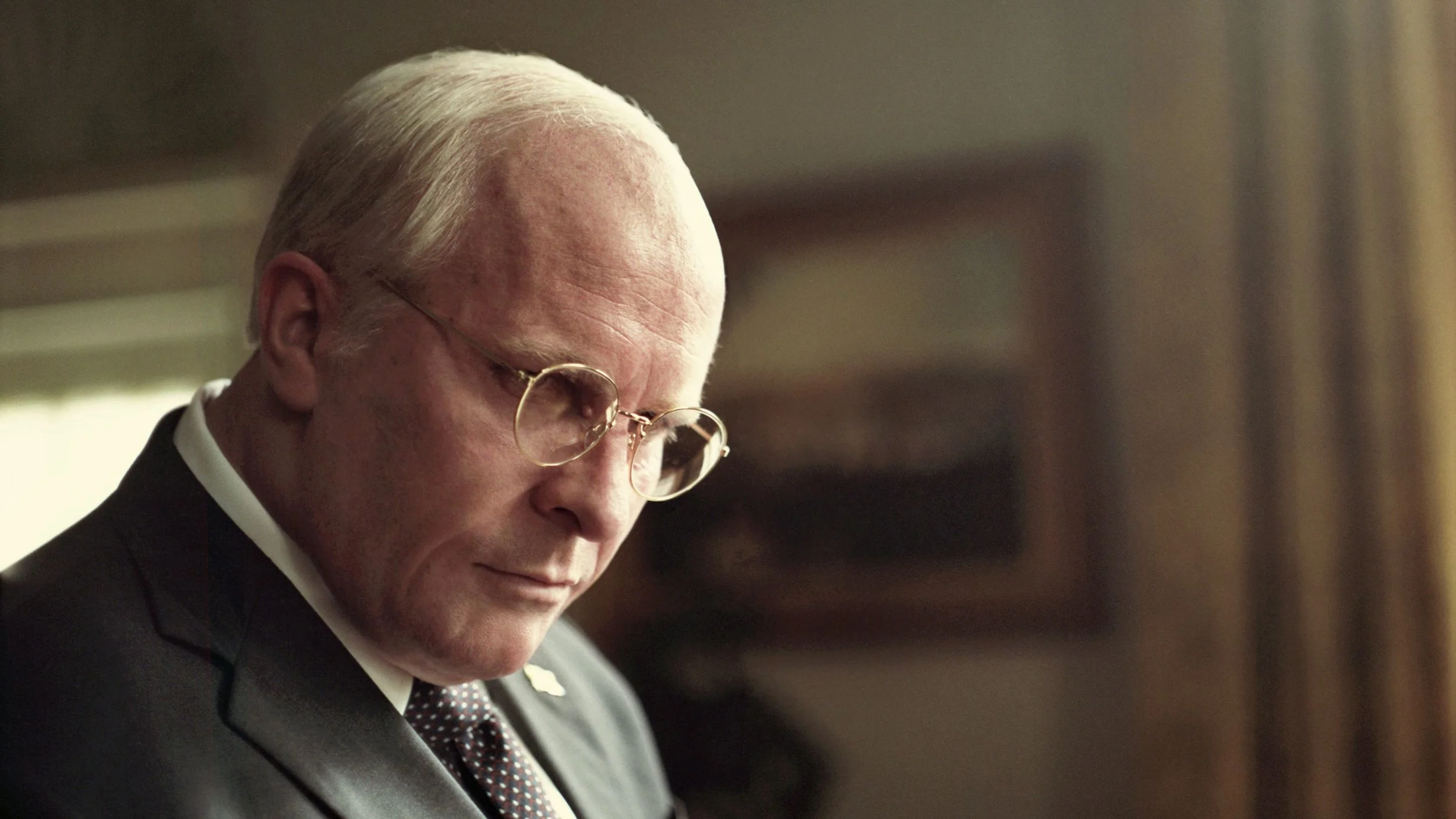With Great Power Comes No Responsibility: A 'Vice' film review
by Will Lindus
In practically every reality competition series, you could cause permanent damage to your liver by playing a drinking game every time a contestant stares at the camera and proudly proclaims, ‘I didn’t come here to make friends.’ The implication here is that any actions are acceptable, no matter how reprehensible they may be, if they help one achieve their end goal. According to Vice, Adam McKay’s biopic about Dick Cheney, the former Vice President subscribes to this notion as well. For Dick Cheney, power - specifically, broadening and wielding the power of the executive branch - is a goal worthy of any sacrifice, a point made crystal clear in a film that has plenty of respect but very little empathy for Cheney.
Truth told, I was a bit skeptical of Vice as a concept. In the real world, Cheney is responsible for many political actions which I personally find rather atrocious, so the idea of a comedy based on his life and exploits left me with a sour taste in my mouth. However, Vice is a remarkably scathing satire, leaving almost no one in Cheney’s circle coming across looking “good.” The actions taken by the administrations Cheney serves are all depicted in a very wag-the-dog style approach, with media spin and public perception being a large deciding factor on any piece of legislation or declaration of war. Ethics are checked at the table, and the film highlights the death toll Cheney is responsible for while also admitting to the fact that Cheney was able to accomplish all of this due to a savvy political mind and a thirst for power.
So, yeah. I ended up liking Vice quite a bit. It’s probably impossible to ask any viewer to attempt to watch this film without bringing their own political biases to the table, as this film isn’t at all concerned with playing things safe. Likely, this will be an echo chamber film. And that’s okay.
Christian Bale, known for his dramatic shifts in body weight when accepting new roles, packs on quite a few pounds to play Dick Cheney in one of the most surprising performances of the year. Bale certainly isn’t what I would have considered a first choice in playing the former Vice President, but the weight gain, the extensive makeup, and the mannerisms he adopts help to transform him into a damn near replica of Cheney. It’s reminiscent of Gary Oldman’s transformation into Winston Churchill in last year’s The Darkest Hour. Bale will likely be in several awards discussions because of the makeup - Oscar loves to reward people who change their appearance for a role - but the strength of Bale’s performance truly lies in his ability to understand what makes Cheney tick, and to carry that sense of quiet ruthlessness to every scene, every interaction.
There is a cavalcade of other notable actors in heavy makeup / prosthetics cast as notable public officials in Vice, some of which work, some less so. Sam Rockwell is a convincing dullard as George W. Bush and Amy Adams is in her typical tour-de-force form as the driven Lynne Cheney, but Steve Carell’s Donald Rumsfeld sticks out like a sore thumb. While the rest of the cast disappears into their roles, Carell is simply playing Carell, and I found myself having to constantly remind myself which character he was playing. But, really, this is the Christian Bale show, and his performance provides enough suspension of disbelief that even the less convincing supporting performances are elevated as a result.
Director Adam McKay refined the style of Vice with his previous offering, the critically-successful The Big Short. As with his previous film, Vice tackles a complex arrangement of political machinations and theories and presents them as easily digestible, comedic breaks from the film’s narrative. For example, when the film speculates on how a particular conversation between Dick and Lynne might have gone down, it shifts into rich Shakespearean dialogue, and when the film presents the concept of Unitary Executive Theory, the film pauses for an explanation about what that means, and why it is important. These asides don’t always work. By design, they break the narrative and dramatic flow, and that isn’t necessarily a bad thing, but some of them come across as McKay being a bit too cute with his directorial style. Still, the overall effect is positive, creating a film that is undeniably McKay in tone and structure.
Bottom line: This is how you tackle a divisive subject properly. Vice very much has an agenda, and that agenda is to showcase the dangerous yet brilliant maneuvers Dick Cheney made as he worked his way to one of the most powerful Vice Presidencies in American history. The tone and subject matter will alienate some viewers, but the craft and the lead performance by Christian Bale make this an incredibly worthwhile watch.
4 out of 5 Bear Paws


